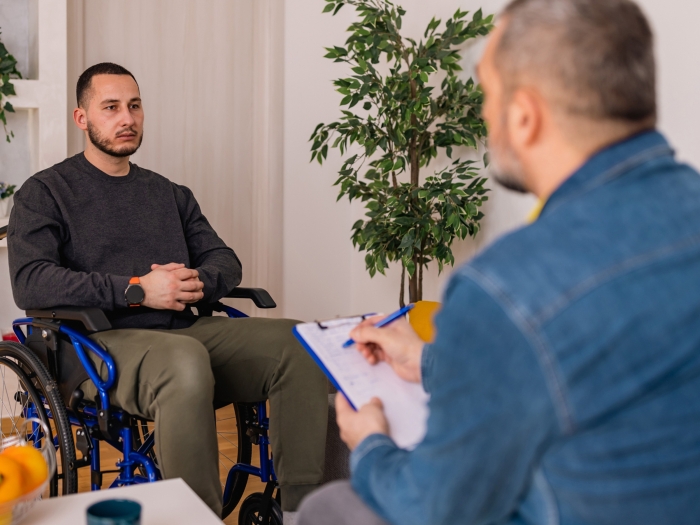
Holtom-Garrett Family Professor of Neurology
Associate Professor of Neurology and Section Head
Multiple Sclerosis
[email protected]
Available to mentor
Tiffany J Braley, MD, MS

Associate Professor
-
Center MemberInstitute for Healthcare Policy and Innovation
-
Braley T. 2024 Dec 17;Additional ScholarshipNIH HEAL Workshop - Interface between sleep and pain: symptomatology, pathobiology and treatment response
-
Braley T. 2024 Dec 17;Additional ScholarshipNIH HEAL Workshop - Interface between sleep and pain: symptomatology, pathobiology and treatment response
-
Polick CS, Darwish H, de Oliveira LP, Watson A, Vissoci JRN, Calhoun PS, Ploutz-Snyder RJ, Connell CM, Braley TJ, Stoddard SA. Sclerosis, 2024 Dec; 2 (4): 341 - 354.Journal ArticleResilience, Mental Health, Sleep, and Smoking Mediate Pathways Between Lifetime Stressors and Multiple Sclerosis Severity.
DOI:10.3390/sclerosis2040022 PMID: 39619286 -
Whibley D, Shieu MM, Dunietz GL, Braley TJ. Sleep Epidemiol, 2024 Dec; 4:Proceeding / Abstract / PosterSleep disturbances and progression of mobility disability: Longitudinal findings from the Nurses' Health Study.
DOI:10.1016/j.sleepe.2023.100071 PMID: 39823032 -
Braley TJ, Ehde DM, Alschuler KN, Little R, Ng YT, Zhai Y, von Geldern G, Chervin RD, Conroy D, Valentine TR, Romeo AR, LaRocca N, Hamade M, Jordan A, Singh M, Segal BM, Kratz AL. Lancet Neurol, 2024 Nov; 23 (11): 1108 - 1118.Journal ArticleComparative effectiveness of cognitive behavioural therapy, modafinil, and their combination for treating fatigue in multiple sclerosis (COMBO-MS): a randomised, statistician-blinded, parallel-arm trial.
DOI:10.1016/S1474-4422(24)00354-5 PMID: 39424559 -
2024 Sep 17;PresentationInvited Special Interest Group Lecture for the annual 2024 ANA meeting: Sleep disorders and multiple sclerosis: The impact of sleep on MS outcomes
-
Polick CS, Dennis P, Calhoun PS, Braley TJ, Lee E, Wilson S. Brain Behav, 2024 May; 14 (5): e3513Journal ArticleInvestigating disparities in smoking cessation treatment for veterans with multiple sclerosis: A national analysis.
DOI:10.1002/brb3.3513 PMID: 38698620 -
Sharma S, Clauw D, Braley T, Arewasikporn A, Kratz A. 2024 Apr 12;Journal ArticleCharacterizing Temporomandibular Disorders in Multiple Sclerosis

Health Lab
Obstructive sleep apnea, a common and underdiagnosed sleep disorder, contributes to dementia in older adults — particularly women, a study suggests.

Health Lab
In a study of commonly used treatments for multiple sclerosis, both medical and behavioral interventions, and a combination of the two, resulted in significant improvements in fatigue.
Department News
Insomnia, sleep apnea contribute to reports of cognitive decline in women with multiple sclerosis
Department News
CBT alone and with meds may decrease MS fatigue
Department News
Study says pets may protect your brain’s cognitive processing as you age